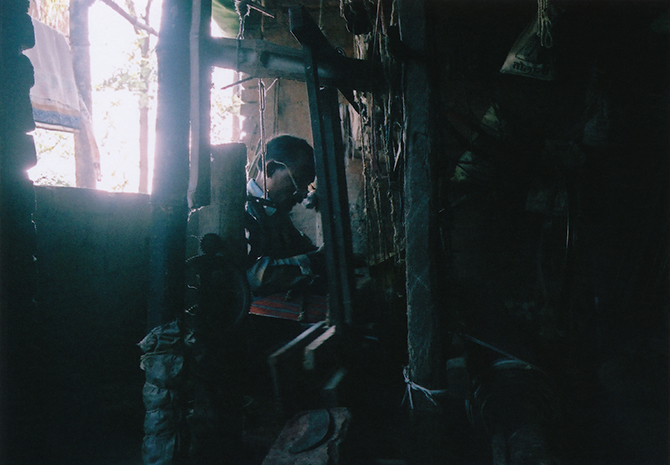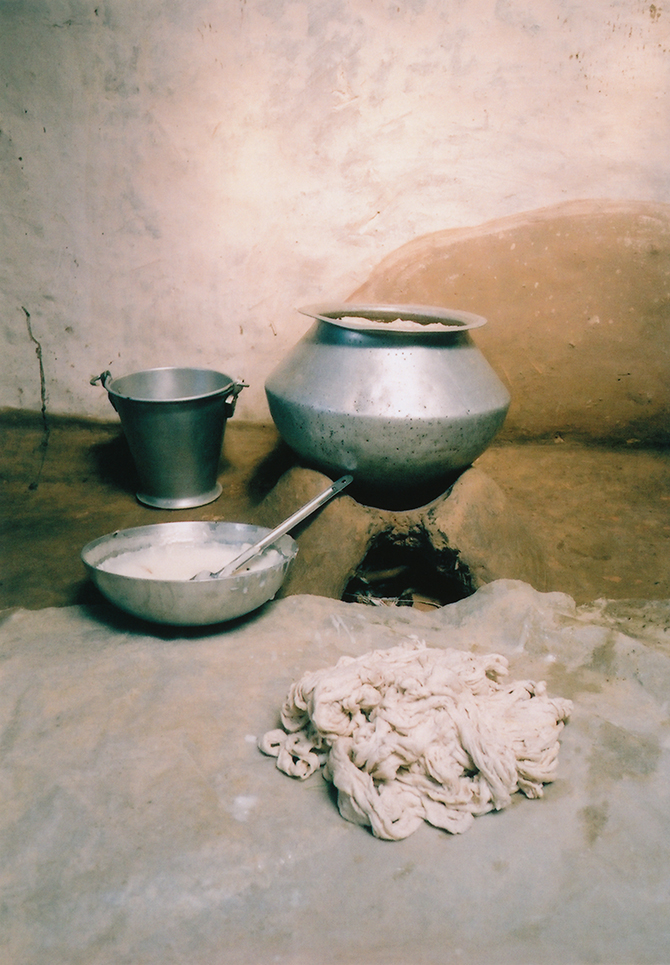Event
Takashi Ichikawa
Tools for “Enjoyment”
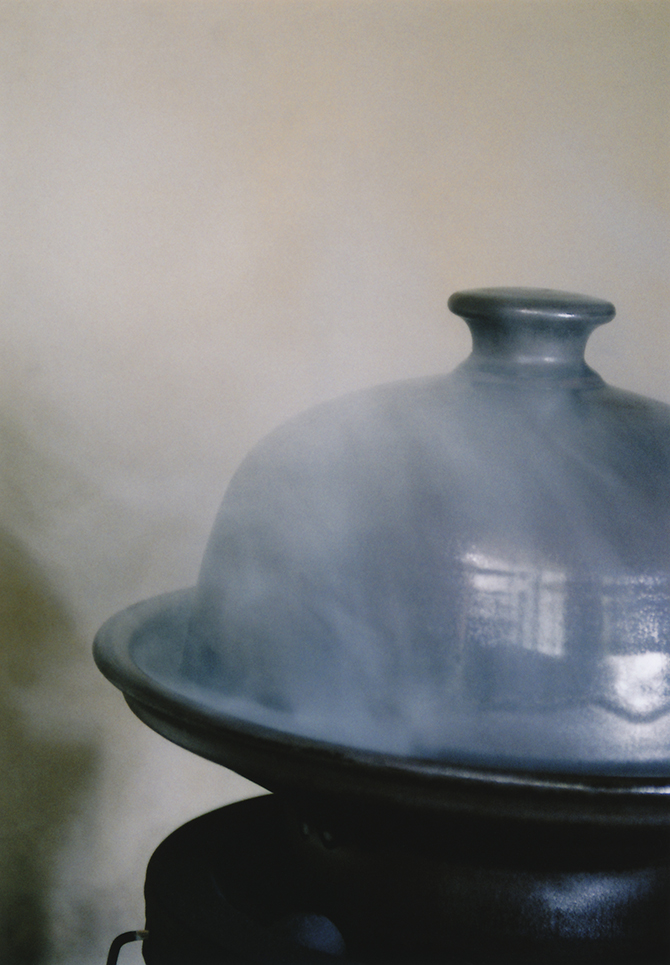
Smoker that burns wood to smoke tara vine of mountain
I wanted for this exhibition to cultivate a spirit of “enjoyment”. I created these tools with this spirit in mind. I’m interested in playing with fire, with water, with plants. Playing is fun but that doesn’t mean it’s easy. A meal can be a feast if you take the time to prepare the ingredients. A cup of tea can be delicious if you prepare it slowly. A flower arrangement can be made by collecting the flowers at your feet. If you take the time and make the effort, more will come of it.
Why not take some time just to enjoy the time? Here is a distiller that collects the scented drops from plants. A smoker that burns wood to smoke food and drinks. A single-handed pot for roasting wildflowers and grains. A kneading bowl for mixing plant flour and water. A fireproof pot that makes a rattling sound. A lampshade that uses oil from plants for its light. These objects are burned and baked using wood. As I finish the vessels I imagine the ecru walls of the Ryugyu in Miyama, Kyoto, or the pure and bright white of the Cosmic Wonder in Tokyo.
Takashi Ichikawa
−
We are pleased to present an exhibition of Takashi Ichikawa’s Tools for “Enjoyment”. In recent years, Ichikawa’s tools, such as tea wheels and tea ceremony utensils, have become the mainstay of his work. These tools convey the essential joys of touching the elements of nature, the richness of playing with water, plants and fire.
−
Exhibition period:
November 7 − November 15, 2020
*The artist will be present on November 7.
Place:
5-18-10 Minami-aoyama, Minato-ku, Tokyo
T. +81 (0)3 5774 6866
noon − 6pm
Takayuki Watanabe
Environment
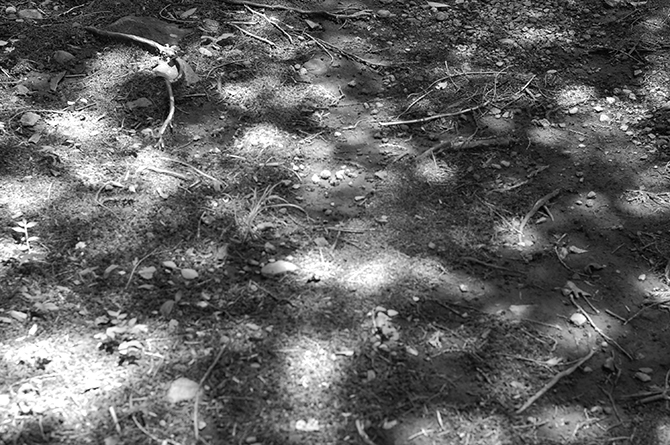
This is that
Same but different
That is that
Flying around
That is this
Floating softly
Around and round
−
We are pleased to present an exhibition of Takayuki Watanabe’s “Environment”. Watanabe’s work is composed of shaped objects excavated from approximately one hundred locations in the Izu Peninsula. The forms that appear come from an act of staring into the essence of the overlapping rings of soil.
COSMIC WONDER Free Press
−
Exhibition period:
August 22 − August 30, 2020
*The artist will be present on August 22.
Place:
5-18-10 Minami-aoyama, Minato-ku, Tokyo
T. +81 (0)3 5774 6866
noon – 6pm
Indigo is the Color of the Universe
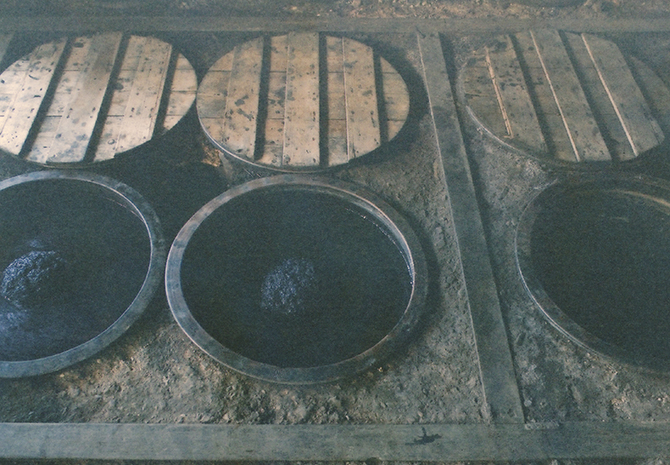
The North Atelier’s indigo dye vat
Our ancestors sought to borrow the color blue from the world of plants.
They wrapped themselves in blue as the Earth itself is wrapped in blue.
Indigo is the fabric of the universe.
Indigo dyeing has a long history. In Egypt, indigo-dyed linens were produced as early as 2000 BC. The process is believed to have been brought to Japan by an envoy to China in the time the Tang Dynasty. Japanese indigo plants include the Tade indigo (Polygonaceae), Ryukyu indigo (Acanthaceous), and the Ai-kazura (Coleoptera). Elsewhere there is the Indian indigo (Fabaceae), the wisteria indigo (Fabaceae) in West Africa, and the ward (Brassicaceae) in Europe. Indigo protects cloth, paper and skin. Its bulbs and leaves can be used as medicine. The cultivation and practice of indigo dyeing connects us to the mysteries of nature and to the wisdom and work of all the generations that have come before us. From the sacred indigo leaf the very colors of the heavens come pouring out.
We are pleased to present the exhibition “Indigo is the Color of the Universe” at the Center for COSMIC WONDER and gallery Hakuden. We will announce indigo dyeing events with Shindo Makito (North Atelier / The Little Indigo Museum), Takayuki Ishii (Awono-you), Hitoshi Kitamura / Miyuki Onishi (Konya Jin), and Keiichi Yoshikawa (Kyoto Hozu Indigo Atelier). We will also present indigo-dyed works by Yukinori Maeda and Sumiko Ishii of Kogei Punks Sha.
−
Makito Shindo (North Atelier / THE LITTLE INDIGO MUSEUM)
Since 2015, he has occupied the North Atelier of founding indigo dye artist Hiroyuki Shindo, where he works with liquid-ash fermentation, a method developed in ancient times. He aspires to make pieces that distill the beauty and mysterious charm of indigo for people to enjoy today. Hiroyuki Shindo established the Matsugasaki Atelier in Kyoto in April 1972. He founded the North Atelier, in Miyama, in April 1981, where he later opened the Little Indigo Museum in April 2005.
Takayuki Ishii (Awono-you)
Indigo-dyeing began with an interest in sustainable design. Learned dying from Noriyuki Murata, liquid-ash fermentation from Fumiko Sato, Nagaita-chougata (stencil dyeing) from Matsubara Yoshichi, Ise-style carving (dyed-pattern paper) from Akio Takai, and crafts from Brian Whitehead. He built an atelier with his wife in the mountainous area of Kanagawa prefecture. Indigo cultivation, making *sukumo, liquid-ash fermentation and dyeing techniques such as stencil dyeing, squeezing, drawing, and wax dyeing. No chemicals are used throughout the process of indigo cultivation and dyeing.
Hitoshi Kitamura and Miyuki Onishi (Konya Jin)
Soil composition, cultivation of indigo grass, making *sukumo, and indigo dyeing. It is a wonder how the indigo color is born out of the flow of time and natural processes. It is the joy of witnessing this wondrous transformation that is at the root of our activities. *Sukumo made in Tokushima prefecture. Liquid-ash fermentation and traditional Japanese indigo dyeing learned in Tochigi prefecture.
Keiichi Yoshikawa (Kyoto Hozu Indigo Atelier)
He has been involved in indigo dyeing for more than 30 years. He revived the phantom Kyoto indigo and then moved to Kameoka city. He rented a tenement house on the banks of the Hozu River to establish the “Hozu Indigo Research Institute” and restore Kyoto Indigo. Indigo cultivation, making *sukumo, liquid-ash fermentation and dyeing. He also dyes Ryukyu indigo by powdered indigo (Doroai).
*Sukumo indigo is a slowly fermented dye.
−
Center for COSMIC WONDER
Exhibition period:
July 4 − July 12, 2020
Open 12pm – 6pm
Temporary Closed: July 3
5-18-10 Minami-aoyama, Minato-ku, Tokyo
T. +81 (0)3 5774 6866
Exhibition period:
July 18 − July 26, 2020
Open 11am − 6pm
7 Moriyamada, Kyotamba-cho, Funaigun, Kyoto
T. +81 (0)771 82 1782
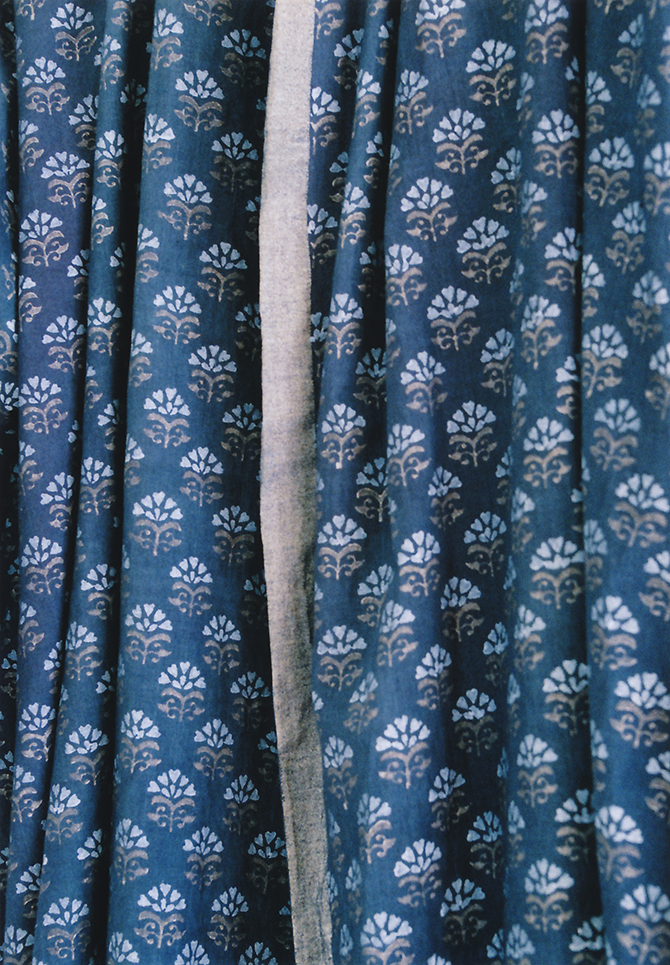
Ryukyu indigo dyed blook printing khadi by Kyoto Hozu Indigo Atelier
Japanese handcrafted Baskets
Part Ⅴ
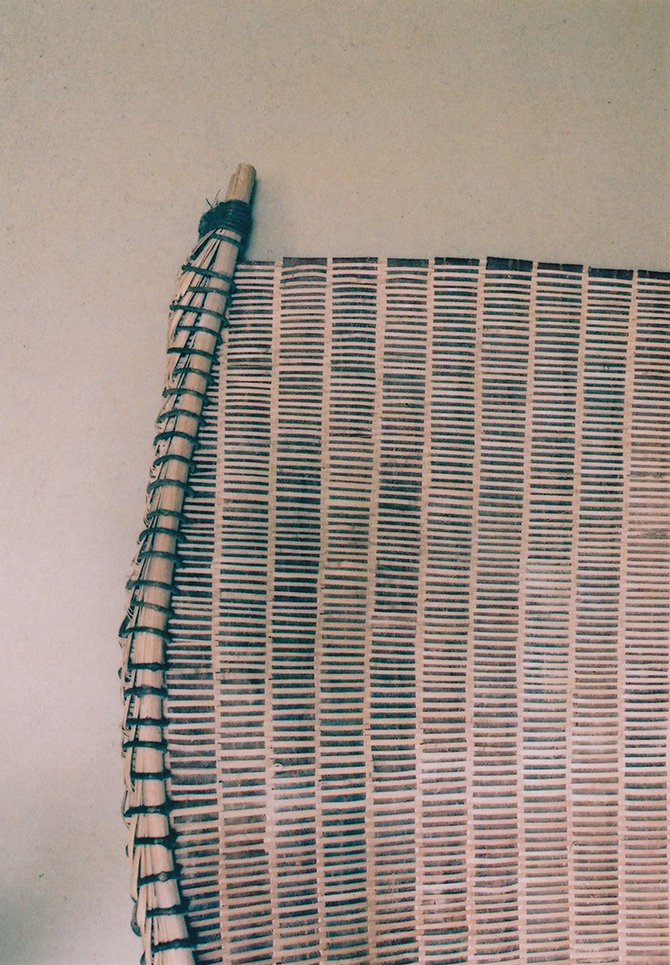
“Saigou Winnow” Composed of Kinchiku, Mountain cherry tree, Japanese wisteria vine, Sinomenium actum vine etc., 1070×1100, Kagoshima Prefecture
Japanese handicrafts made with natural raw materials are an embodiment of appreciation, awe and respect for nature. They reflect the traditional Japanese satoyama lifestyle that people and nature coexist sustainably. (In a satoyama, people typically forms a community (=sato) with farmlands, on the border of a forest (=yama). A forest is a resource for their living, being managed sustainably by sato residents.) In such satoyama living, the art of livingware handcrafting has been passed along from generation to generation, producing practical and useful objects. They provide insights into a lifestyle in harmony with nature.
COSMIC WONDER Free Press
For this exhibition, Naoyoshi Maeda (Cosmic Wonder, Light & Will) sourced handcrafted baskets by visiting local craftspeople in various places from Akita to Okinawa.
Each of their work is unique and representative of the regions where they are crafted. Their rustic beauty attracts us.
Center for COSMIC WONDER Online Store also will be sold handcrafted baskets exhibited at the exhibition.
We has been cancelled Mr Shinichi Nakagawara’s demonstration of traditional Akebi vine basketwork at the opening of the exhibition.
−
Exhibition period:
June 20 − July 2, 2020
Place:
5-18-10 Minami-aoyama, Minato-ku, Tokyo
T. +81 (0)3 5774 6866
*Temporary Closed: June 18 − 19
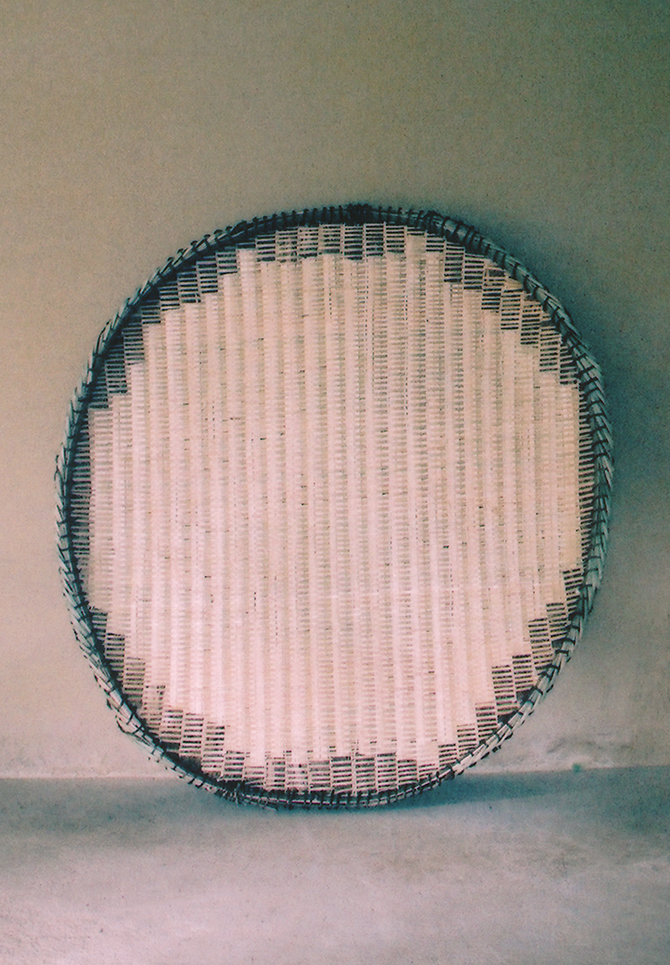
“Bara” Composed of Kinchiku, Mountain cherry tree, Sinomenium actum vine etc., ⌀ 1000, Kagoshima Prefecture
From Beautiful Khadi Village
COSMIC WONDER
TENJIKU DIALY
We are pleased to present exhibition “TENJIKU DIARY” at the Center for COSMIC WONDER. Yukinori Maeda traveled to Kolkata, India, the days in the village of Khadi became the Spring Summer collection “TENJIKU LIGHT”. It is a collection that imagines a beautiful living space. The essence of this collection, Khadi is hand-spun and hand-woven cotton fabric that was once woven in most rural area of India. In recent years, there is movement to connect this beautiful cloth to future generations as a special craft of India. Khadi is very comfortable to wear and airy for the hot summer. And Khadi is printed on traditional woodblock printing.
COSMIC WONDER Free Press
Center for COSMIC WONDER will be available from June 20, Online Store from June 30. At the same time, this exhibition will be held from June 20th at STARDUST in Kyoto. We will sell Khadi’s Bath towel, Hand towel and Eco friendly bag as a limited items.
We will be pleased to present exhibition “Japanese handcrafted Baskets Part Ⅴ” too.
Beautiful clothes and crafts will become the brilliance of life, and create a space of light.
5-18-10 Minami-aoyama, Minato-ku, Tokyo
T. +81 (0)3 5774 6866
41 Shimodakedono-cho, Shichiku Kita-ku, Kyoto
T. +81 (0)75 286 7296
[ Stockist of Khadi items ]
JAPAN / Tokyo, Kanto
NANOHANA KURASHINODOUGUTEN (Odawara)
N ID (Shibuya)
LAMP HARAJUKU (Harajuku)
OUTBOUND (Kichijoji / Yoyogiuehara)
ST COMPANY (Kiryu / Takasaki)
URBAN RESEARCH DOORS (Shinmisato / Toyosu)
JAPAN / Chubu, Hokuriku
CABINET ATELIER (Nagoya)
FABER LABORATORIO (Matsumoto)
MM BOOKS MINO (Mino)
RAFIE (Niigata)
SOLA (Shizuoka)
JAPAN / Kinki
ANGERS (Kyoto)
ARCHIPELAGO (Sasayama)
HEMMING SHOP (Osaka)
STARDUST (Kyoto)
URBAN RESEARCH DOORS (Osaka)
JAPAN / Chugoku, Shikoku, Kyushu
CITE’ (Hiroshima)
HIMOROGI (Kitakyushu)
M-2 (Kochi)
UTUSIKI (Fukuoka)
88 (Marugame / Niihama)
ASIA
SUZUKI SHOP (Beijin)
WASHIDA (Taiwan)
NORTH AMERICA
OROBORO (New York)
MAMEG (Los Angeles)
“Khadi is not a cloth. It is thought” Mohandas Karamchand Gandhi
Photography and Fashion Since the 1990s
TOKYO PHOTOGRAPHIC ART MUSEUM
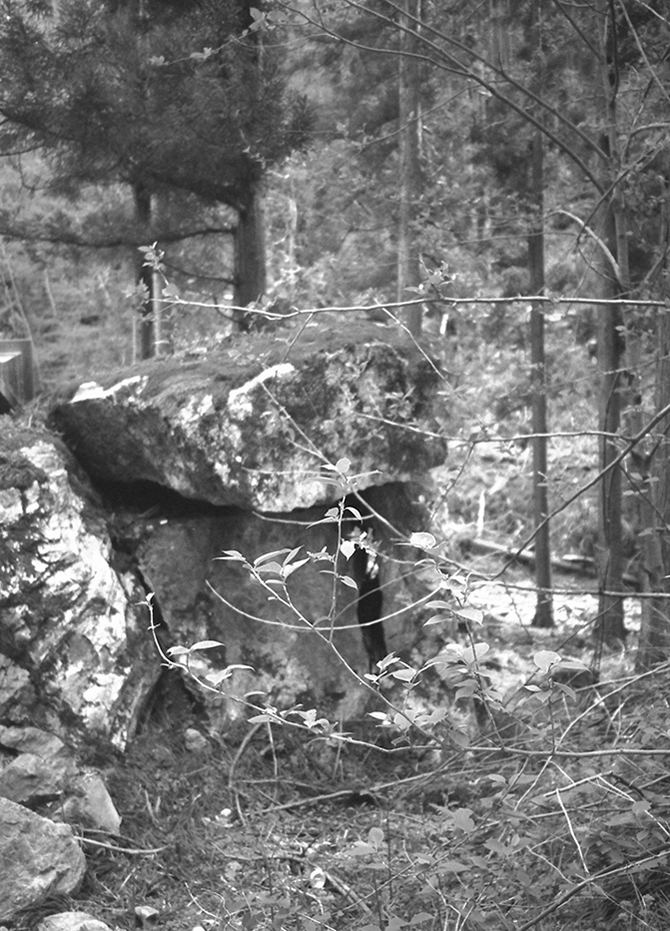
Yukinori Maeda “Hirakiiwa” 2018,Gelatin silver print
The exhibition “Photography and Fashion Since the 1990s” will join Yukinori Maeda at The Tokyo Photographic Art Museum.
He will present new works’s collaboration with Elein Fleiss. The outline of the exhibition is as follows. (Expect from The Tokyo Photographic Art Museum)
−
The Tokyo Photographic Art Museum is delighted to present Photography and Fashion Since the 1990s, an exhibition exploring the relationship between photography and fashion from the 1990s onward. As the world of fashion has evolved, photography has played a pivotal part in conveying the appeal of garments by fashion designers. At times, images created by photography have appealed more than the garments themselves, and such iconic imagery has symbolized the age. The 1990s saw the emergence of photographers who went beyond the conventional framework for communicating the appeal of fashion items to create images that appeal to people. Moreover, fashion magazines appeared that took an independent stance in transmitting information. Images created from new points of view influenced people’s thinking and lifestyles. Those images have been referred to repeatedly by subsequent generations. Since the first decade of the twenty-first century, the relationship between photography and fashion has undergone even more changes. In the past, news about the latest fashion shows and exhibitions was transmitted through a limited group of intermediaries: newspaper and magazine editors and writers, for example. In recent years, however, that information has reached the hands of the general public, without a time lag, via SNS platforms such as Twitter and Instagram. Moreover, the people on the receiving end of this information are not merely taking it in: they send out their own information, in many forms, of which the tagged selfie is a classic example. For this exhibition, we have welcomed as its supervisor Nakako Hayashi, who has observed the worlds of fashion and the arts as a long-term editor of the culture magazine Hanatsubaki. Through works by artists in Japan and abroad, the exhibition attempts to explore the relationship between photography and fashion. It displays, in addition to photographs, rare fashion magazines that became major turning points in their time and is accompanied by related events, for an engaging look at photography and fashion from many angles.
−
Date:
June 2 − July 19, 2020
Place:
TOKYO PHOTOGRAPHIC ART MUESEUM
2F, Yebisu Garden Place, 1-13-3 Mita Meguro-ku Tokyo
Open 10pm − 6am
*Closed: Every Monday
Takashi Ichikawa
“Chaguruma and Pottery”
Enjoy water, fire, and plants from the foot of Mount Ibuki
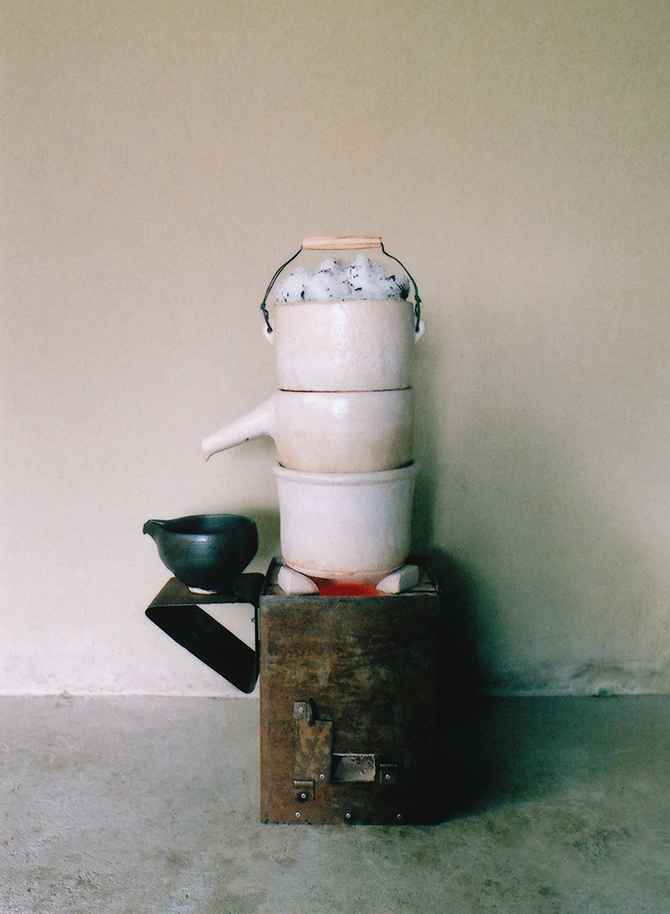
Notice of Exhibition’s Postponement
We will postpone Takashi Ichikawa’s exhibition.
Please allow us to contact you again later on our home page.
−
It was an encounter with a great tea tree up in the mountains of Xishuangbanna in Yunnan, China, that made me appreciate how tea represented the union of plants, fire (yang) and water. The world of tea, which had once seemed rather lofty to me, now felt open and free. The medicinal qualities of some teas are well known. But there are hundreds of types and hundreds of different tastes. I wanted to find a way to share with others my experiences, which is what led me to develop the Chaguruma. I wanted to look deeper into the subject of wild grasses and medicinal herbs so I visited Sawamura-san of yasousora. Sawamura-san’s home is in Fukuoka. She invited me into a kind of open-air room built on the rooftop, a perfect setting where tea and conversation could flow freely. The tea we drank was from the old tree tea in Xishuangbanna. From the rooftop we could gaze into the lovely garden below. When one considers tea as a plant, the shapes and qualities of the pottery and utensils used to serve it also become more distinct. This time, I would like to share with people some of the plants found at the foot of Mount Ibuki, in Shiga prefecture.
Takashi Ichikawa
−
We are pleased to present Takashi Ichikawa’s exhibition, “Chaguruma and Pottery”, at the Center for COSMIC WONDER. For this exhibition, he will share his unique perspective on tea, on wild grasses and medicinal herbs, and how they can bring our lives into harmony with nature. In addition to tea-making and serving tools, he will also present newly-fabricated distillers and lamps.
−
Exhibition period:
April 18 – April 26 , 2020
*The artist will be present on April 18 and 19.
Location:
5-18-10 Minami-aoyama, Minato-ku, Tokyo
T. +81 (0)3 5774 6866
Open 11am – 7pm
Opening Event:
1. Workshop “sora’s wild grass tea”
Demonstration of how to make “wild grass tea”.
The role of wild grass, collecting and drying, roasting, combining, etc.
The experience of rebuilding the body with wild grass. We will learn about the power of wild grass.
You can enjoy sweets by yoin and wild grass tea with Ichikawa’s tea utensils.
Saturday, April 18 / 11am − 1pm
Sunday, April 19 / 11am − 1pm
Fee: 7,700 JPY (with wild grass tea and sweets)
Reservation required / Number of seats: 8
2. Tea Ceremony “sora”
“Medicine” to enjoy on the grass written by Chinese characters.
Medicinal herbs from Mount Ibuki, Wild grass tea collected and blended in sora’s field.
You can enjoy sweets by yoin and wild grass tea with Ichikawa’s tea utensils.
Saturday, April 18 / 5:30pm − 6:30pm
Sunday, April 19 / 2:30am − 3:30pm
Sunday, April 19 / 5pm − 6pm
Fee: 5,500 JPY (with wild grass tea and sweets)
Reservation required / Number of seats: 8
3. Flower arrangement party “Tsumugi”
A party to enjoy flower arrangement.
We will arrange plants collected from Mount Ibuki and tsumugi’s fields in Ichikawa’s various flower vases.
Let’s reflect on the relationship between plants and pottery.
Saturday, April 18 / 2:30pm − 4:30pm
Fee: 8.800 JPY (with wild grass tea and sweets)
Reservation required / Number of seats: 5
−
yasousora / Gendou Sawamura Hina Sawamura
Wild grasses connect us to ancient times, and to the universe itself.
Daily life is teaching about and learning from the wild grasses that surround us.
Based in Fukuoka Prefecture
We hope to educate others about the benefits of wildflowers and wild grasses.
https://www.instagram.com/yasousora/
tsumugi / Hina Sawamura
Naturally grown grass, trees and flowers and seasonal plant work.
She has a shop in Gokusho-cho, Teramachi, Hakata Region, specializing in picked plants and flowers.
https://www.instagram.com/tsumugigarden/
Confectionery production / yoin
https://www.instagram.com/yoin88888/
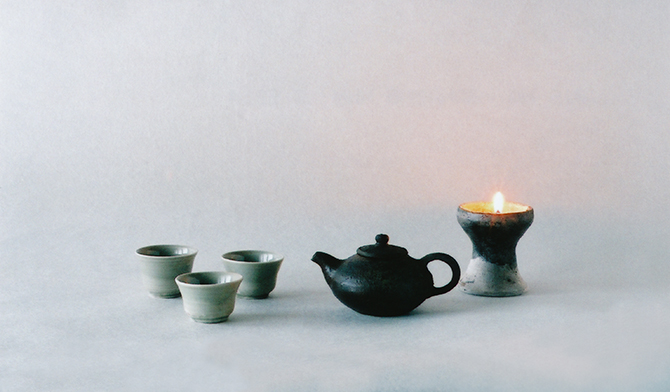
rinn to hitsuji
Light of Life
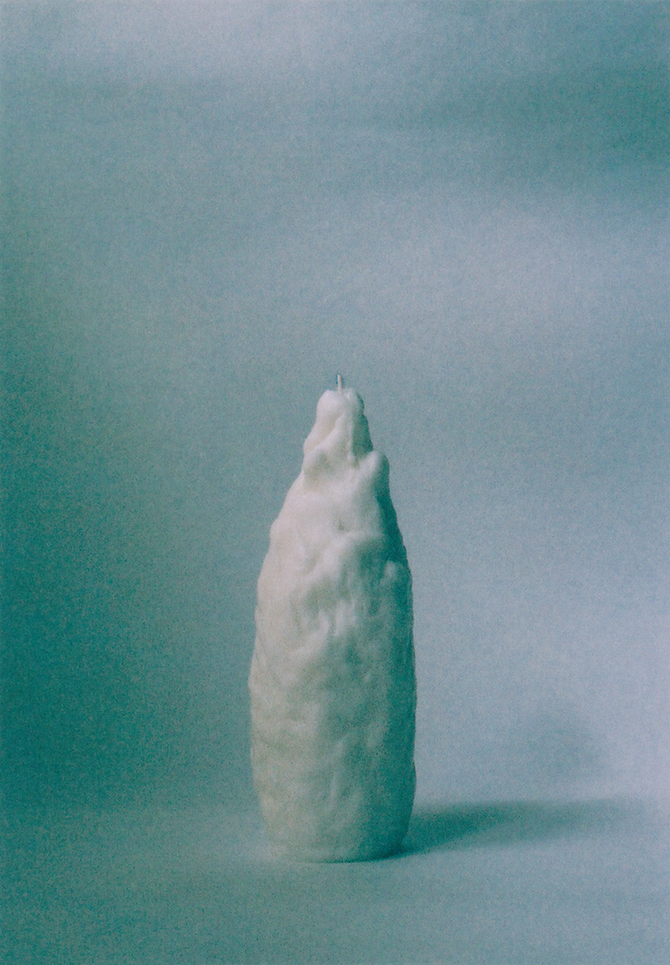
The source of everything for me
Like the source of light itself
If you light a candle, it may become like a wing,
Perhaps like a prayer, all may become light
I can’t say what is visible and what is not visible
I just know that all sources are light
rinn to hitsuji
−
We are pleased to present “Light of Life”, the first exhibition of rinn to hitsuji at Center for COSMIC WONDER. rinn to hitsuji was founded in 2007. The candles are made with soy wax, palm wax, rapeseed wax and beeswax, all 100% natural. All essences used are natural oils and carefully worked by hand. The candles are formed by the heart, like a friend who gently snuggles beside you. Their light is the light of love. rinn to hitsuji creates a light that shines like the beautiful and unwavering heart of a candle.
−
Exhibition period:
December 12 – December 22 , 2019
The artist will be present on December 12.
Opening Live:
Luca
Thursday, December 12 / 6:00pm
Fee: 3,000 JPY
Number of seats: 30
*All the seats are booked.
LUCA
Born in Berkeley, California, Luca is a singer-songwriter who released her debut album “So, I began” in 2015. Her work includes vocal performances on Ryuichi Sakamoto’s 8th solo album “async”, as well as some recent collaborations with haruka nakamura. In September 2019, she released the album “Light Waves” in collaboration with the Kyoto-based singer-songwriter There is a fox. She currently lives in Tokyo, having lived before in California, Denmark and Paris.
Location:
5-18-10 Minami-aoyama, Minato-ku, Tokyo
T. +81 (0)3 5774 6866
Open 11am – 7pm
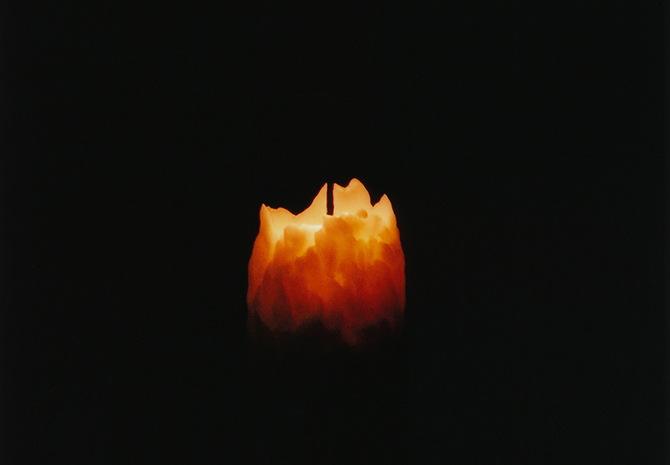
Shigeo Tanaka
Form of Love
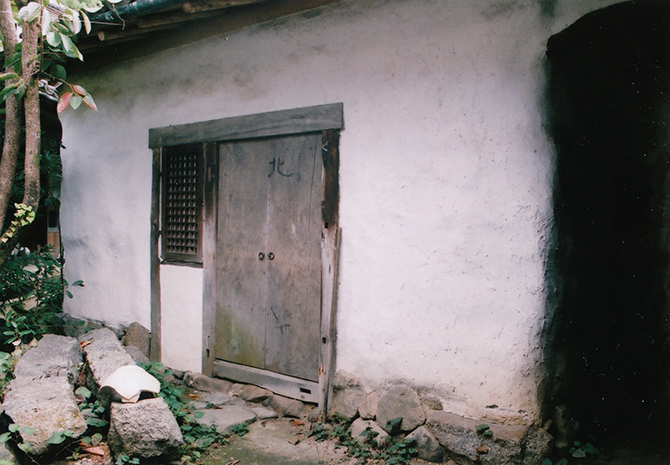
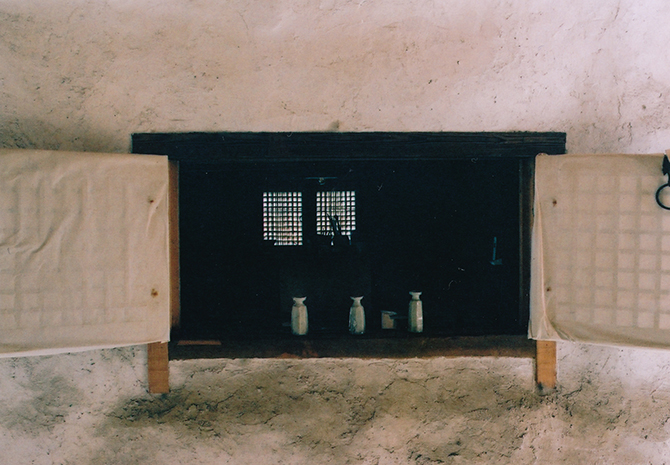
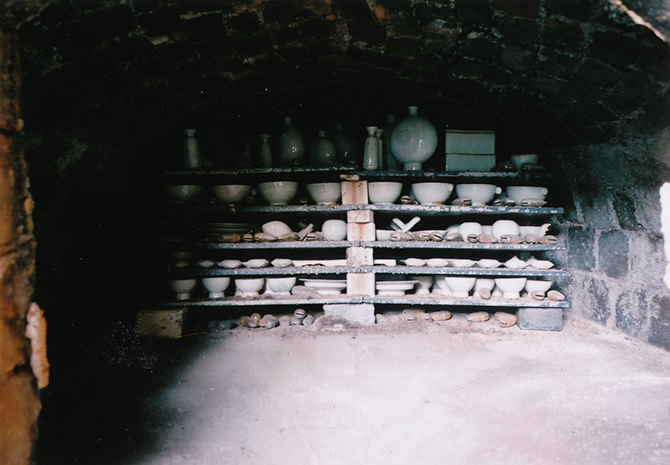
Because I like antiques and especially pottery, I started making it myself.
At first it was fun to work on the wheel but recently I have made many things with hand gestures and string which allows me to express myself even more. I have come to meet a variety of interesting people in recent years and one of them gave me a particular suggestion: “Why not close your eyes when you work?” When I try it, something unexpected is sure to happen. With your eyes closed, you get a deeper sense of handling the soil, so you can focus on the dialogue with the soil. Another person said to me, “Your kiln has a will. Fire has a will. You are loved by the kiln”. This made me very happy and I wanted to converse with the kiln. These works are part of my dialogue with the earth and with the kiln.
Shigeo Tanaka
−
We are pleased to present the 3rd exhibition; Shigeo Tanaka “Form of Love” at Center for COSMIC WONDER.
Tanaka lives an old house of 280 years old in Asuka village, Nara Prefecture, his works making from a Hole type kiln “Rikei gama” and “Touen-shiki Takigama”.
We will present a work that reveals the truth and beauty, born in an intimate dialogue with soil and kiln, connects the past and the present.
Exhibition period:
November 9 – November 17 , 2019
The artist will be attending on November 9
Opening Talk:
“Form of Love”
Shigeo Tanaka, Primi-Chibu, AAWAA
Date: Saturday, November 9 / 4:00pm – 5:30pm
Fee: Donation
Number of seats: 30
*All the seats are booked.
Place:
5-18-10 Minami-aoyama, Minato-ku, Tokyo
T. +81 (0)3 5774 6866
Open 11am – 7pm
*Closed: November 8
Miyakono Yasuda
ancient sound
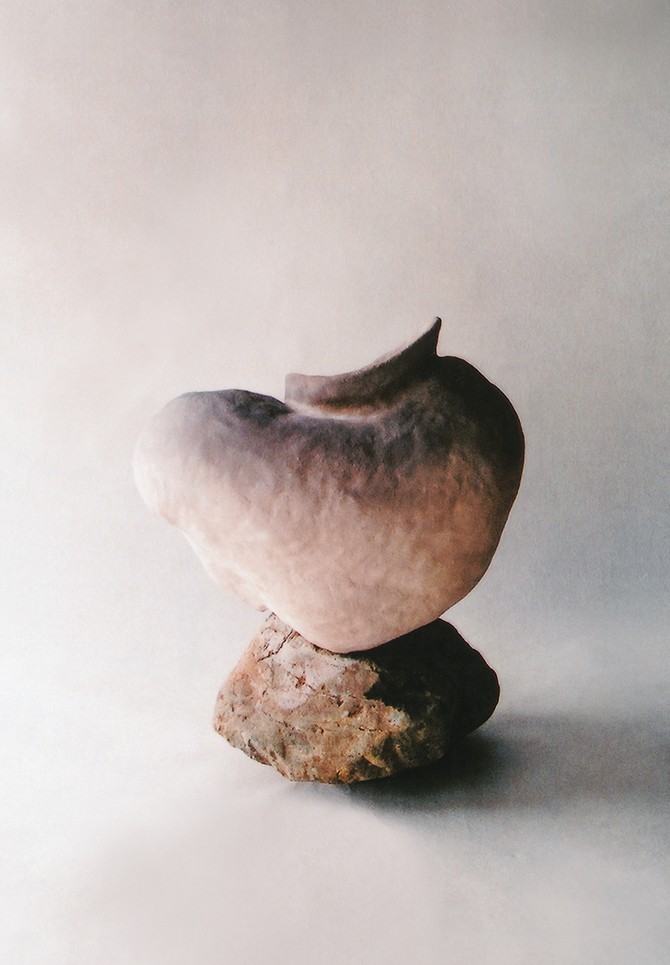
The natural world plays a natural music of overtones that settles our breathing and steadies our nerves.
On this spherical, spinning Earth, silent vibrations constantly stir our blood and bones and revitalize our cells.
I thought that something similar was happening in earthenware pots.
Something was being transmitted by earthenware for years and years.
I tried to measure their frequencies.
Large open-mouthed pots have a low frequency, while narrow-mouthed vases have a higher frequency due to their faster resonance.
It depends as well on the thickness, form, and quality of the clay.
The same is true for a tuning fork.
A low frequency produces a dull reverberation and a high frequency rings with a clear sound.
I think it’s the difference between use value and taste.
Leave water in an earthenware pot overnight and its resonance will send ripples through the water.
If I play a small harp above an earthenware pot, it becomes an amplifier.
If I bury a clay pot in the soil it will absorb the sound from above the ground, which is why it has found a modern use as soundproofing.
I choose stone as a conduit to receive the frequencies emanating from the soil.
When I shape an earthenware pot on a stone, I can hear the same sound that the ancients heard.
I think this is a good way to feel their rich and sublime spirituality.
Miyakono Yasuda
−
We are pleased to present the fiest solo exhibition; Miyakono Yasuda “ancient sound”.
Miyakono Yasuda mixed the cray and soil around the Jomon ruins with plants from unique perspective.
The soil is formed by hand-twisting, and the work is fired by noyaki process.
Yasuda is trying to make the sound of ancient people appear through her works.
It feels as an act of connecting sprit and thought in harmony with nature (God) to the present.
Exhibition period:
October 13 – October 20, 2019
*The artist will be attending on October 13
*Closed: October 11 – 12
*Temporary changed open time / 1pm – 7pm , October 13.
Opening Ceremony:
Saturday, October 13 / 4pm
Miyakono Yasuda
Born in 1972.
Started activities based on plants, minerals, and soil from 2012.
Create works by connecting ancient pottery formation, studies fired by Noyaki (open firing) with unique senses.
Yasuda has been involved in the activities and art production of Cosmic Wonder since its establishment.

COSMIC WONDER
Harmonic Meditation
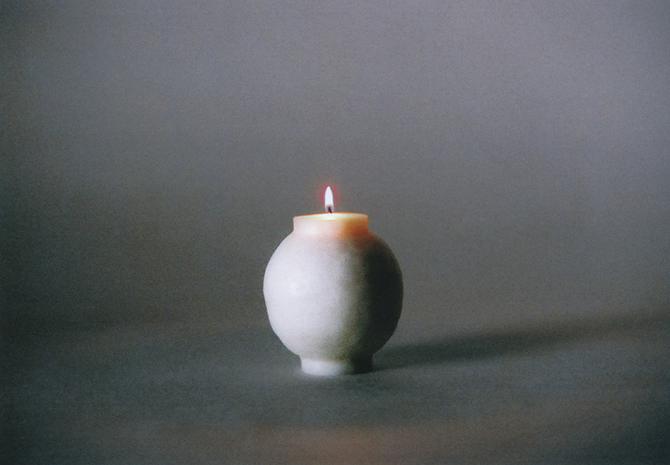
The season when the water jug echoes the heavens
Beautiful dimensions ascend from the earth
Like myself and my true self
The sky and soil touch with light
Smiling angels and spirits rejoicing
Flickering all around like radiant stars
To bring all of life into harmony
Warmth rises up
Remembrances emerge from the past
New things made visible by the cosmos
According to the play of light
Take pleasure in the sight of art and clothing
−
We are pleased to present the exhibition; COSMIC WONDER “Harmonic Meditation”.
The exhibition will feature new clothes of collection, include arts and crafts, available for purchase,
produced under the theme”Harmonic Meditation”, by artists curated by Yukinori Maeda, Cosmic Wonder.
Garments by
COSMIC WONDER
Arts and crafts by
Hiroki Tashiro (Sculpture)
Yasuhide Ono (Accessory)
Miyakono Yasuda (Earthware)
Masaru Kawai (Woodwork)
Kaoru Yokoo (Repair clothes)
CATHERINE EMIW (Old instruments)
rinn to hitsuji (Candle)
We will be given to the purchaser Harmonic Meditation’s bag made from Indian hand-woven cotton Khadi.
(It will end as soon as it is gone.)
Exhibition period:
September 14 – October 10, 2019
Openning tea:
Saturday, September 14 / 3pm – 5pm
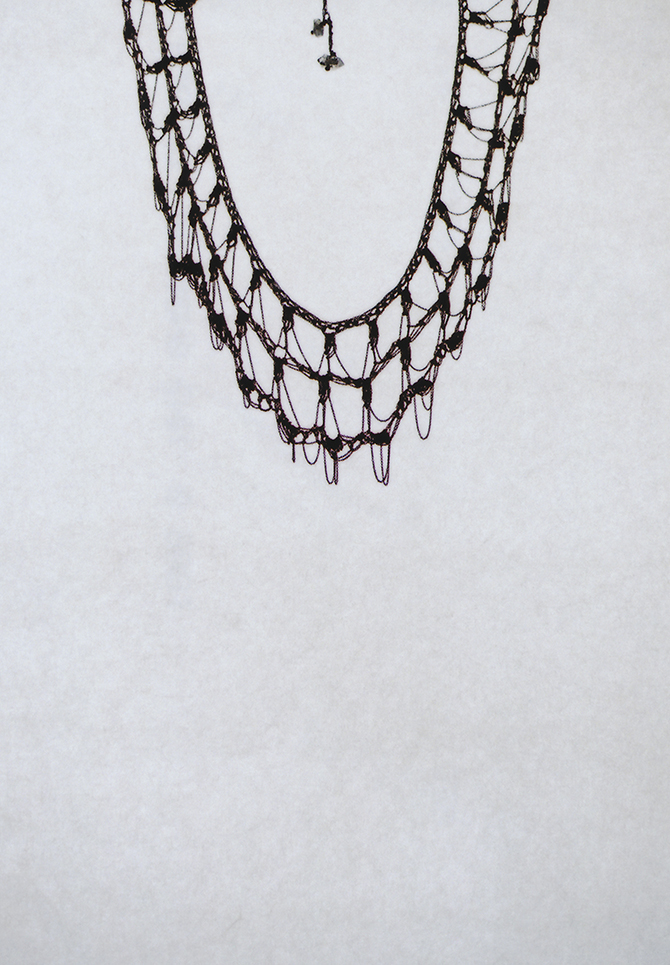
Masaru Kawai
by trees
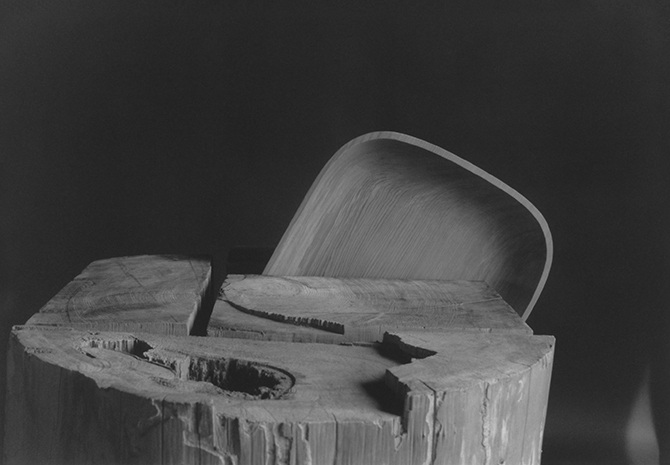
Furniture, flooring, dishes, or pencils that we usually see.
The trees used for them were originally grown in the mountains. Someone cut it, someone sawed it, and someone made it.
But do you fell there? What kind of mountain did you live on?
The Japanese view of nature changed dramatically after the 1964 Olympics. A line was drawn between people and nature.
And again, the Olympics are coming. I am scared.
I want to be by nature a little more if I can do it.
Masaru Kawai
—
We are pleased to present the 3rd solo exhibition; Masaru Kawai “by trees”.
We live in the natural and live in symbiosis, in recent years we have done all things with the concept separated from nature.
And We feel the limit to that, and many movements to restore each view of nature take place among the artists active in the same period.
Kawai puts the concept of mountains, trees, and nature into a strong concept, and produces beautiful works that include mythical features such as offerings to the natural world.
In this exhibition, Kawai will present works that evoke the awakening of nature and universal beauty that all of us possess.
And also the works of the Japanese coniferous forest project SOMA.
On the opening day, We will have a breakfast party “The beauty of nature / Memories of life” with Kawai, Dr.Toshiro Inaba, and Shiori Goto.
We talked about the source of the beauty after eating Shiori goto’s breakfast.
Exhibition period:
August 3 – August 11, 2019
*The artist will be attending on August 3
Opening Event:
Breakfast party “The beauty of nature / Memories of life”
Masaru Kawai, Toshiro Inaba, Shiori Goto
Date:
Saturday, August 3 / 9:00am – 11:00am
Reservation required / Number of seats: 15
4,500 JPY (All the seats are booked.)
Place:
5-18-10 Minami-aoyama, Minato-ku, Tokyo
T. +81 (0)3 5774 6866
Open 11am – 7pm
*Closed: July 23 – August 2
Masaru Kawai
Born in 1979, Gifu Prefecture farmers
2007~ Start as woodworker
2016 Start from “SOMA” product treating a Japanese conifer
Planning a workshop and fieldwork of connect forest and person.
Toshiro Inaba
Doctor, Assistant Professor of Cardiology, The University of Tokyo Hospital. Doctor of Medicine.
Born in 1979, Kumamoto prefecture
Representative books “Awaken of anima” Published by anonima studio.
Shiori Goto
After Bhutan restaurant and Vegetable restaurant, became independent in 2012.
Based in Setagaya, Tokyo, as catered food and catering chef.
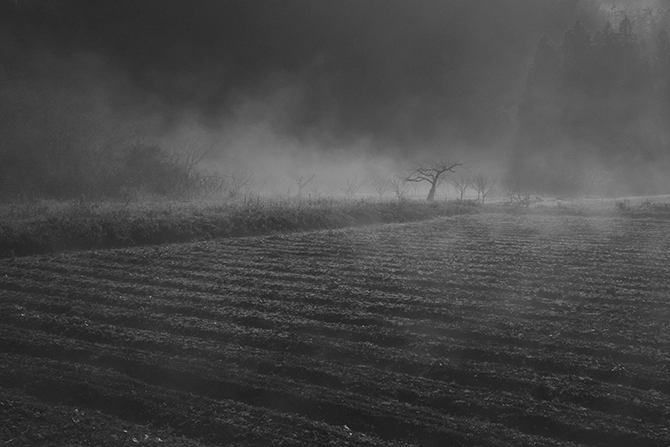


 Facebook
Facebook Twitter
Twitter